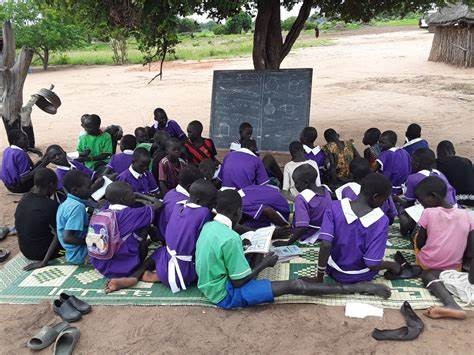
Several education stakeholders have attributed the poor performance of certain regions in the 2024 Certificate of Primary Education (CPE) exams to unequal learning conditions, particularly the impact of flooding and delayed teacher salaries.
On Tuesday, South Sudan’s National Examination Council (NEC) released the 2024 CPE results, reporting a national pass rate of 94.9%. Of the 77,264 candidates who sat for the exams – 42,257 boys and 35,007 girls -73,326 students passed.
However, 3,878 students did not meet the passing grade an the national performance index stood at 73.1%.
While the high pass rate was welcomed, most of the top thirteen performers came from Central Equatoria State. Only a few top scorers came from Western Bahr el Ghazal and Unity State.
Stakeholders noted that the exams, conducted from November 18 to 22, 2024, took place while many schools were still recovering from widespread flooding, especially in Upper Nile and Unity states.
Deng Ajith, Chairperson of the Teachers’ Union in Jonglei State, said persistent flooding disrupted education across the region throughout 2024.
“Some areas will improve next year,” he said. “Flooding had a serious impact on learners in Upper Nile, and that could explain why schools from the region didn’t appear in the top ten.”
Ajith called on the government to prioritize reconstruction of flood-damaged infrastructure and strengthen support for education in vulnerable areas.
Majok Both, a senior official with the Unity State Examination Council, echoed those concerns, noting that flood devastation, combined with delayed teacher salaries, significantly hindered exam preparation.
“Most schools in Upper Nile are government-run,” Both said. “When salaries are delayed, teachers become demotivated, and learners in lower classes are not adequately prepared for Primary Eight.”
Despite the challenges, Both expressed optimism that performance would improve, as the state government works to address structural and financial issues affecting education.
Meanwhile, Martha Akuch, a primary education specialist, said that strong academic performance is directly tied to the quality of learning environments.
“Top performers mostly came from Central Equatoria, particularly Juba City, where students have access to electricity, experienced teachers, and well-supported private schools,” she explained.
Akuch urged the government to improve both the welfare of teachers and

